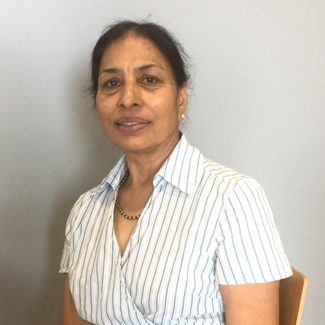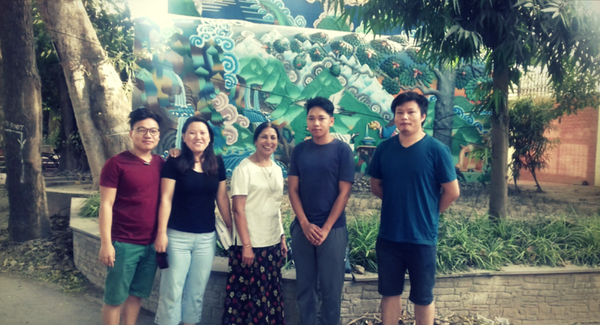Lakshmi Kambampati recently achieved a lifelong dream: She was awarded a Fulbright Distinguished Award in Teaching for 2017-18. The prestigious scholarship allowed Kambampati to teach mathematics at the Central Institute of Higher Tibetan Studies in India for two semesters.
She said, “(It was a) once in a lifetime thing and it was absolutely awesome. It was the highlight of my career.”
Kambampati chose to teach in India because of the country’s need for education.
“Need is everywhere,” she said, “but my research said there was more need over there.”

Kambampati has an impressive history in education and worked hard to earn the Fulbright Scholarship. She said the process of applying for the scholarship was laborious. She wrote an essay that went through four intense layers of selection before being chosen.
Kambampati has been changing the lives of her students for many years. She taught at Wichita Public Schools for 20 years and made such an impact that the city of Wichita proclaimed Aug. 15, 2000 “Lakshmi Kambampati Day.”
She now teaches as an adjunct mathematics lecturer at Butler Community College and educates students on the history of India at Friends University.
Her Fulbright scholarship time in India was not the first time she shared her teaching abilities in another country. In the past, as a Peace Corps response volunteer, Kambampati trained the first batch of middle school math teachers in Liberia after the country suffered 14 years of civil war and battled the Ebola epidemic.
In India, she taught future math teachers at a university. There was no language barrier for Kambampati because she grew up in India and was familiar with the culture.
Teaching a project-based learning model rather than a lecture is an important part of Kambampati’s effective teaching method. Being able to connect mathematics to real life with a hands-on approach makes all the difference for her students, she said.
By connecting math to real-life situations, it makes it more meaningful and creates a true interest.
“If you don’t connect it, there is no interest,” she said. “But when you connect it to the real world they think, ‘I want to do this,’ and they start dreaming; ‘I want to be a doctor,’ … and that’s what we want.”
There is no foreseeable end for Kambampati’s passionate teaching career. “I would like to do more and more and more. As long as I have my health,” she said.

